This is an old revision of the document!
Table of Contents
Politics
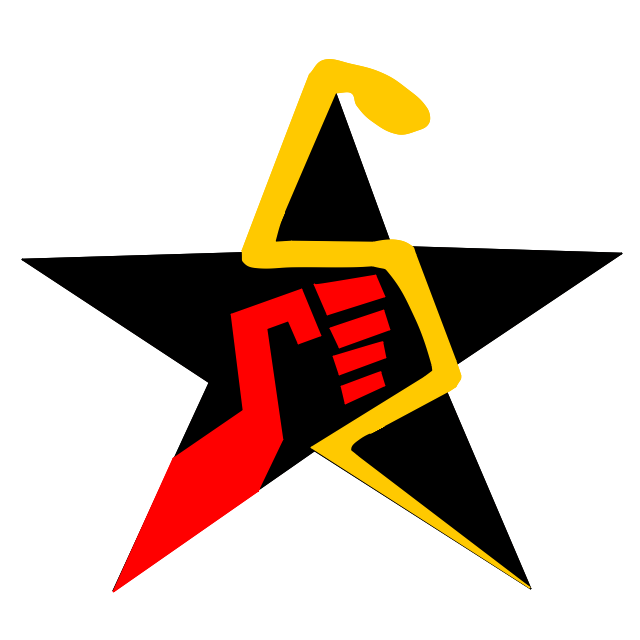 As Solar Punk envisions a free and egalitarian world, its politics take the form of Libertarian Socialism; a group of anti-authoritarian political philosophies inside the socialist movement that rejects the conception of socialism as centralized state ownership and control of the economy. Libertarian socialism criticizes wage labour relationships within the workplace, instead emphasizing workers' self-management of the workplace and decentralized structures of directly democratic political organization. It often rejects the state itself, and asserts that a society based on freedom and justice can be achieved through abolishing authoritarian institutions that control certain means of production and subordinate the majority to an owning class or political and economic elite. All of this is generally done within a general call for libertarian and voluntary human relationships through the identification, criticism, and practical dismantling of illegitimate authority in all aspects of human life.
As Solar Punk envisions a free and egalitarian world, its politics take the form of Libertarian Socialism; a group of anti-authoritarian political philosophies inside the socialist movement that rejects the conception of socialism as centralized state ownership and control of the economy. Libertarian socialism criticizes wage labour relationships within the workplace, instead emphasizing workers' self-management of the workplace and decentralized structures of directly democratic political organization. It often rejects the state itself, and asserts that a society based on freedom and justice can be achieved through abolishing authoritarian institutions that control certain means of production and subordinate the majority to an owning class or political and economic elite. All of this is generally done within a general call for libertarian and voluntary human relationships through the identification, criticism, and practical dismantling of illegitimate authority in all aspects of human life.
Social Ecology and Communalism
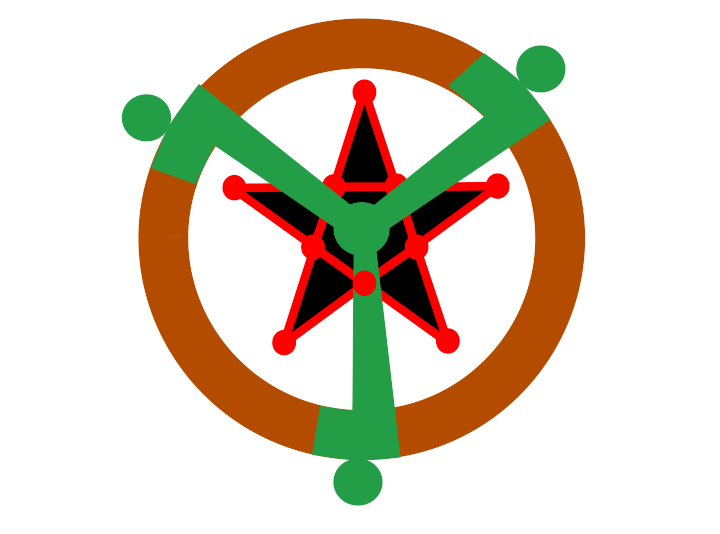 Communalism is a system of government in which virtually autonomous local communities are brought together in a confederation under the principles and practice of communal ownership. Social Ecology is its recognition of the often-overlooked fact that nearly all our present ecological problems arise from deep-seated social problems.
Communalism is a system of government in which virtually autonomous local communities are brought together in a confederation under the principles and practice of communal ownership. Social Ecology is its recognition of the often-overlooked fact that nearly all our present ecological problems arise from deep-seated social problems.
- Social Ecology and Communalism - Murray Bookchin
- Remaking Society: Pathways to a Green Future - Murray Bookchin
- The Ecology of Freedom - Murray Bookchin (Audiobook)
- Communalism: A Liberatory Alternative - Marcus & Stephanie Amargi (Audiobook)
- Toward a Communalist Approach - Murray Bookchin
Anarchism
 Anarchism is a political philosophy that advocates self-governed societies based on voluntary, cooperative stateless societies, rejecting hierarchies they view as unjust. Anarchism holds capitalism, the state, and representative democracy to be undesirable, unnecessary and harmful. Anarchism specifically entails opposing authority or hierarchical organisation in the conduct of all human relations. Anarchism does not offer a fixed body of doctrine from a single particular world view. Many types and traditions of anarchism exist, ranging from collectivism to individualism, not all of which are mutually exclusive.
Anarchism is a political philosophy that advocates self-governed societies based on voluntary, cooperative stateless societies, rejecting hierarchies they view as unjust. Anarchism holds capitalism, the state, and representative democracy to be undesirable, unnecessary and harmful. Anarchism specifically entails opposing authority or hierarchical organisation in the conduct of all human relations. Anarchism does not offer a fixed body of doctrine from a single particular world view. Many types and traditions of anarchism exist, ranging from collectivism to individualism, not all of which are mutually exclusive.
Works
- Anarchy Works - Peter Gelderloos
- To Change Everything, an anarchist appeal - CrimethInc Ex-Workers Collective
- We House, You are Housed, They are Homeless - Colin Ward
Libraries
Dual Power and Infrastructure-as-Resistance
- Dual Power: A Strategy To Build Socialism In Our Time - the Libertarian Socialist Caucus of the Democratic Socialists of America
Libertarian Marxism
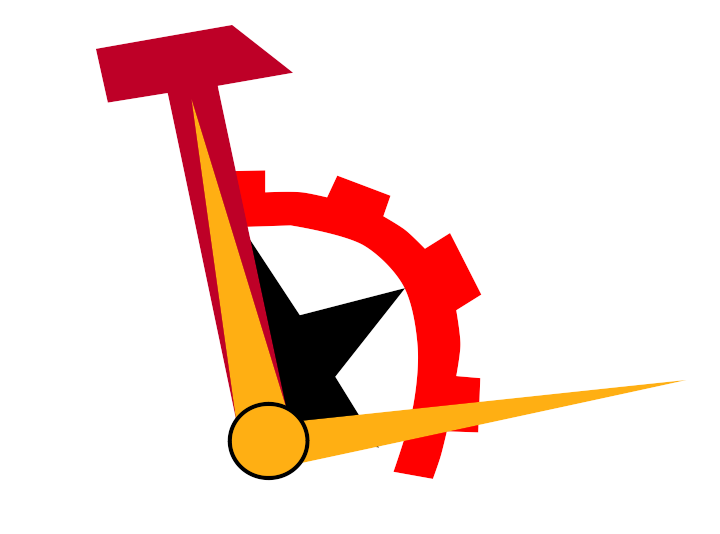 Libertarian Marxism refers to a broad scope of economic and political philosophies that emphasize the anti-authoritarian aspects of Marxism. Early currents of libertarian Marxism, known as left communism, emerged in opposition to Marxist-Leninist vanguardism, it is also often critical of reformist positions, such as those held by social democrats. Libertarian Marxist currents emphasize the Marxist belief in the ability of the working class to forge its own destiny without the need for a revolutionary party or state to mediate or aid its liberation.
Libertarian Marxism refers to a broad scope of economic and political philosophies that emphasize the anti-authoritarian aspects of Marxism. Early currents of libertarian Marxism, known as left communism, emerged in opposition to Marxist-Leninist vanguardism, it is also often critical of reformist positions, such as those held by social democrats. Libertarian Marxist currents emphasize the Marxist belief in the ability of the working class to forge its own destiny without the need for a revolutionary party or state to mediate or aid its liberation.
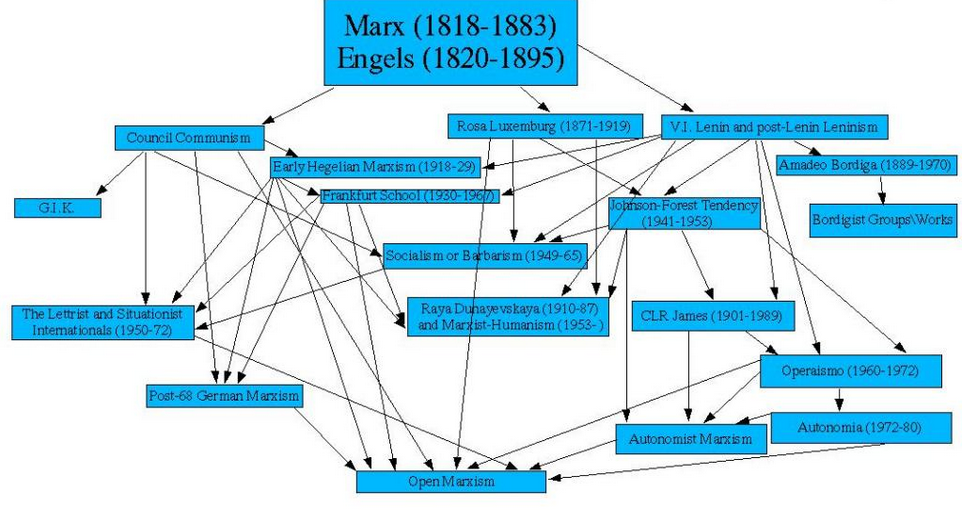
- Manifesto of the Communist Party - Karl Marx & Friedrich Engels (Audiobook)
- Grundrisse - Karl Marx
- The Civil War in France - Karl Marx
- Economic & Philosophical Manuscripts of 1844 - Karl Marx
- Libertarian Marxism? - Daniel Guérin
- Libertarian Marxism's Relation to Anarchism - Wayne Price
Autonomism
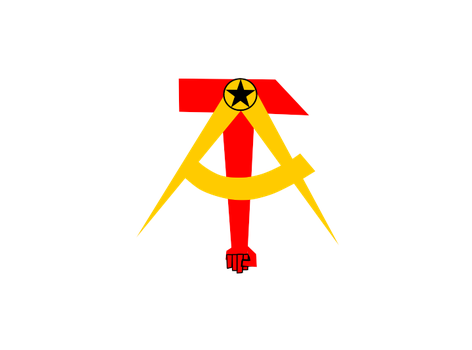 Autonomism emphasises the ability of the working class to force changes to the organization of the capitalist system independent of the state, trade unions or political parties. Autonomous social movements involve people directly in decisions affecting their everyday lives. They seek to expand democracy and to help individuals break free of political structures and behavior patterns imposed from the outside.
Autonomism emphasises the ability of the working class to force changes to the organization of the capitalist system independent of the state, trade unions or political parties. Autonomous social movements involve people directly in decisions affecting their everyday lives. They seek to expand democracy and to help individuals break free of political structures and behavior patterns imposed from the outside.
- Empire - Michael Hardt and Antonio Negri
- Multitude - Michael Hardt and Antonio Negri
- Commonwealth - Michael Hardt and Antonio Negri
- The Subversion of Politics - Georgy Katsiaficas
- Reading Capital Politically - Harry Cleaver
- Rupturing the Dialectic - Harry Cleaver
Bordigism
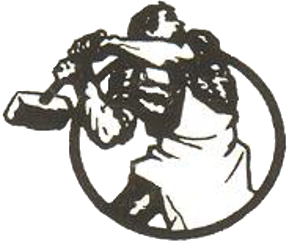 Bordigism is a variant of left communism which refuses on principle any participation in parliamentary elections.
Bordigism is a variant of left communism which refuses on principle any participation in parliamentary elections.
- Fundamental Theses of the Party - Amadeo Bordiga
- Murder of the Dead - Amadeo Bordiga
- On the Dialectical Method - Amadeo Bordiga
- Amadeo Bordiga: Beyond the Myth and the Rhetoric - Onorato Damen
Chaulieu–Montal Tendency
The Chaulieu–Montal tendency is the political philosophy of the French libertarian socialist group 'Socialism or Barbarism' and its British counterpart 'Solidarity', following from the belief that what the working class was addressing in their daily struggles was the real content of socialism. It was critical of Leninism, rejecting the idea of a revolutionary party, and placing an emphasis on the importance of workers' councils.
- The Imaginary Institution of Society - Cornelius Castoriadis
- Figures of the Thinkable - Cornelius Castoriadis
- The Irrational in Politics - Maurice Brinton
- The Bolsheviks and Workers Control - Maurice Brinton
- Proletarian Experience - Claude Lefort
- What is Bureaucracy? - Claude Lefort
- Socialism or Barbarism - Solidarity
- Poland 1980-1982 - Henri Simon
Communization
Communization means the abolition of property itself along with any state-like institutions claiming to represent a given subset of humanity. In these accounts humanity as a whole, directly or indirectly, would take over the task of the production of goods for use (and not for exchange). People would then have free access to those goods rather than exchanging labor for money, and distribution would take place according to the maxim “from each according to his ability, to each according to his need.”
- To Our Friends - The Invisible Committee
- Communization and its Discontents - Benjamin Noys
- Bring Out Your Dead - Endnotes
- Communisation - Gilles Dauvé
- The Story of Our Origins - Gilles Dauvé
- Eclipse and Reemergence of the Communist Movement - François Martin & Gilles Dauvé
- Recollecting Our Past - La Banquise
- A World Without Money - The Friends of 4 Million Young Workers
Council Communism
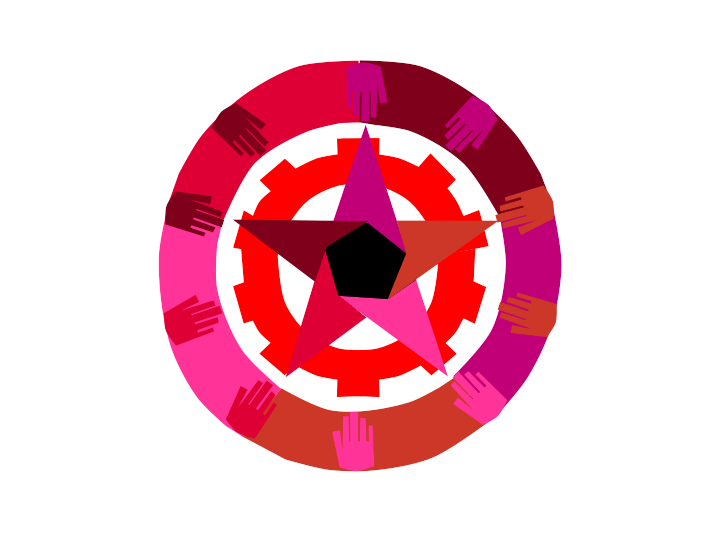 Council communism is a current of socialist thought characterized by its opposition to statism and its advocacy of workers' councils and soviet democracy as the basis for dismantling the class state. It is opposed to the party vanguardism and democratic centralism of Leninist ideologies and it contends that democratic workers' councils arising in the factories and municipalities are the natural form of working class organization and authority. Council Communism also stands in contrast to social democracy through its formal rejection of both reformism and “parliamentarism”.
Council communism is a current of socialist thought characterized by its opposition to statism and its advocacy of workers' councils and soviet democracy as the basis for dismantling the class state. It is opposed to the party vanguardism and democratic centralism of Leninist ideologies and it contends that democratic workers' councils arising in the factories and municipalities are the natural form of working class organization and authority. Council Communism also stands in contrast to social democracy through its formal rejection of both reformism and “parliamentarism”.
- Hungary '56 - Andy Anderson
- The Revolution is not a party affair - Otto Rühle
- Workers' Councils - Anton Pannekoek
- Lenin as a Philosopher - Anton Pannekoek
- Council Communism - Mark Shipway
De Leonism
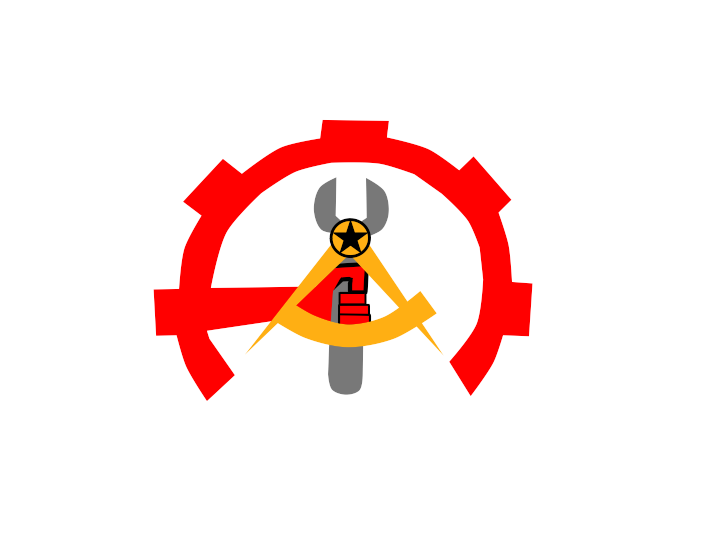 De Leonism is a libertarian Marxist current combining the theories of revolutionary syndicalism with orthodox Marxism. According to De Leonist theory, militant industrial unions as the vehicle of class struggle will bring about the change needed to establish a socialist system. Unlike Anarcho-Syndicalism, De Leonism believes in the necessity of a central government to coordinate production as well as in the use of a revolutionary political party in addition to union action to achieve its goals.
De Leonism is a libertarian Marxist current combining the theories of revolutionary syndicalism with orthodox Marxism. According to De Leonist theory, militant industrial unions as the vehicle of class struggle will bring about the change needed to establish a socialist system. Unlike Anarcho-Syndicalism, De Leonism believes in the necessity of a central government to coordinate production as well as in the use of a revolutionary political party in addition to union action to achieve its goals.
- Reform or Revolution? - Daniel De Leon
- What Means This Strike? - Daniel De Leon
- The Burning Question of Trade Unionism - Daniel De Leon
- The Socialist Reconstruction of Society - Daniel De Leon
- As to Politics - Daniel De Leon
Marxist Humanism
 Marxist humanism concluded that, as there was no true socialist society existing anywhere in the world, a return to the fundamentals of Marxism was in order - emphasizing the Marxist Theory of Alienation and Hegel's philosophy as being the foundation of Marxism.
Marxist humanism concluded that, as there was no true socialist society existing anywhere in the world, a return to the fundamentals of Marxism was in order - emphasizing the Marxist Theory of Alienation and Hegel's philosophy as being the foundation of Marxism.
- A New Notion - C.L.R. James
- State Capitalism & World Revolution - C.L.R. James, Raya Dunayevskaya & Grace C. Lee
- The Black Jacobins - C.L.R. James
- Facing Reality - C.L.R. James & Grace C. Lee
- The Uniqueness of Marxist Humanism - Raya Dunayevskaya
- Dialectics: The Algebra of Revolution - Raya Dunayevskaya
- The Free Speech Movement and the Negro Revolution - Raya Dunayevskaya
- Economic Reality and the Dialectics of Liberation - Raya Dunayevskaya
- The Death of the Death of the Subject - Peter Hudis
Luxemburgism
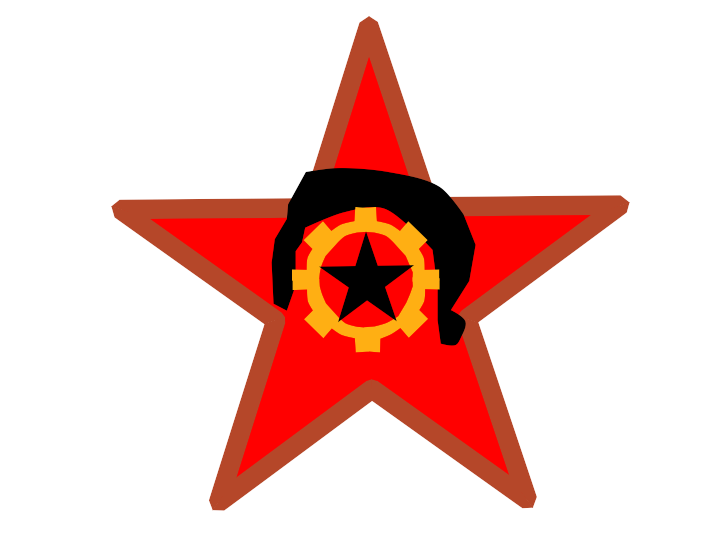 Luxemburgism professes a commitment to a generalized democracy in an unarticulated form, and the necessity of a revolution to bring it about.
Luxemburgism professes a commitment to a generalized democracy in an unarticulated form, and the necessity of a revolution to bring it about.
- Leninism or Marxism? - Rosa Luxemburg
- The Accumulation of Capital - Rosa Luxemburg
- Reform or Revolution - Rosa Luxemburg
Open Marxism
Open Marxism is a school of thought which draws on libertarian socialist critiques of party communism and stresses the need for openness to praxis and history through a dialectical method grounded in the “practical reflexivity” of Karl Marx's own concepts. The “openness” in open Marxism also refers to a non-deterministic view of history in which the unpredictability of class struggle is foregrounded.
- Change the world without taking power - John Holloway
- Crack Capitalism - John Holloway
- The State Debate - Simon Clarke
Situationism
Situationist theory represents an attempt to synthesize this diverse field of theoretical disciplines into a modern and comprehensive critique of advanced capitalism. The situationists recognized that capitalism had changed since Marx's formative writings, but maintained that his analysis of the capitalist mode of production remained fundamentally correct; such as his theory of alienation. They asserted that the misery of social alienation and commodity fetishism were no longer limited to the fundamental components of capitalist society, but had now in advanced capitalism spread themselves to every aspect of life and culture.
- On the Poverty of Student Life - UNEF Strasbourg
- Report on the Construction of Situations - Guy Debord
- The Revolution of Everyday Life - Raoul Vaneigem
- The Society of the Spectacle - Guy Debord
Western Marxism
Western-Marxism emphasises Marxism's philosophical and sociological aspects, and its origins in the philosophy of Georg Wilhelm Friedrich Hegel and the more humanistic works of “Young Marx”. Western Marxism arose in opposition to the form of Marxism codified in the Soviet Union, and over time shifted from a political movement to an academic one.
- Character Analysis - Wilhelm Reich
- The Mass Psychology of Fascism - Wilhelm Reich
- The Sexual Revolution - Wilhelm Reich
- History and Class Consciousness - Georgy Lukacs
- Prison Notebooks - Antonio Gramsci
- Reason And Revolution - Herbert Marcuse
- The Work of Art in the Age of Mechanical Reproduction - Walter Benjamin
- Eclipse of Reason - Max Horkheimer
- Escape From Freedom - Erich Fromm
- Minima Moralia - Theodor W. Adorno
- One-Dimensional Man - Herbert Marcuse
- Negative Dialectics - Theodor W. Adorno
- The Structural Transformation of the Public Sphere - Jürgen Habermas
- The Theory of Communicative Action - Jürgen Habermas
- Dialectic of Englightenment - Max Horkheimer & Theodor W. Adorno
- The Authoritarian Personality - Theodor W. Adorno, Else Frenkel-Brunswik, Daniel Levinson & Nevitt Sanford
- Theses on the Philosophy of History - Walter Benjamin
Other Tendencies
Utopian Socialism
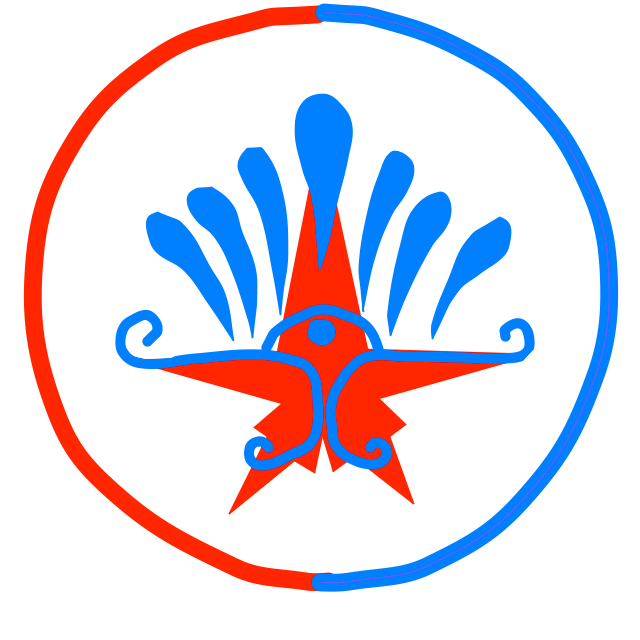 Utopian socialism is the presentation of visions and outlines for imaginary or futuristic ideal societies, with positive ideals being the main reason for moving society in such a direction. Utopian socialists generally do not believe any form of class struggle is necessary for socialism to emerge, instead that people of all classes can voluntarily adopt their plan for society if it is presented convincingly. They feel their form of cooperative socialism can be established among like-minded people within the existing society and that their small communities can demonstrate the feasibility of their plan for society.
Utopian socialism is the presentation of visions and outlines for imaginary or futuristic ideal societies, with positive ideals being the main reason for moving society in such a direction. Utopian socialists generally do not believe any form of class struggle is necessary for socialism to emerge, instead that people of all classes can voluntarily adopt their plan for society if it is presented convincingly. They feel their form of cooperative socialism can be established among like-minded people within the existing society and that their small communities can demonstrate the feasibility of their plan for society.
- The Law of Freedom in a Platform - Gerard Winstanley
- The Theory of Four Movements - Charles Fourier
- A New View of Society - Robert Owen
Guild Socialism
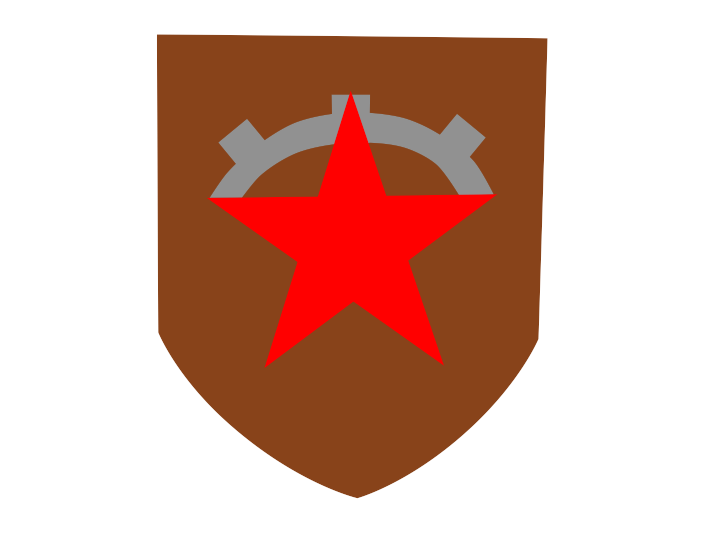 Guild socialism is a political movement advocating workers' control of industry through the medium of trade-related guilds “in an implied contractual relationship with the public”. Guilds would not confine their demands to matters of wages and conditions but would seek to obtain control of industry for the workers whom they represented. Ultimately, industrial guilds would serve as the organs through which industry would be organised in a future socialist society.
Guild socialism is a political movement advocating workers' control of industry through the medium of trade-related guilds “in an implied contractual relationship with the public”. Guilds would not confine their demands to matters of wages and conditions but would seek to obtain control of industry for the workers whom they represented. Ultimately, industrial guilds would serve as the organs through which industry would be organised in a future socialist society.
- Restoration of the Guild System - Arthur Penty
- National Guilds - Samuel George Hobson
- Guild Socialism Restated - G.D.H. Cole
- Self Government in Industry - G.D.H. Cole
Inclusive Democracy
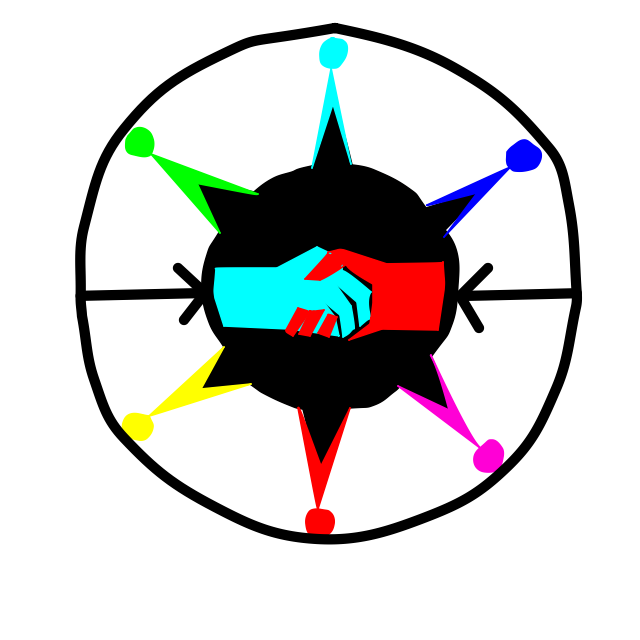 Inclusive Democracy is a project that aims for direct democracy; economic democracy in a stateless, moneyless and marketless economy; democracy in the social realm through self-management; and ecological democracy.
Inclusive Democracy is a project that aims for direct democracy; economic democracy in a stateless, moneyless and marketless economy; democracy in the social realm through self-management; and ecological democracy.
- Towards an Inclusive Democracy - Takis Fotopoulos
- The Multidimensional Crisis and Inclusive Democracy - Takis Fotopoulos
- Global Capitalism and the Demise of the Left - Steve Best
Participism
 Participism consists of two independently created economic and political systems: participatory economics or “parecon” and participatory politics or “parpolity”. Participism envisions remaking all of human society from the bottom up according to principles of direct participatory democracy and replacing economic and social competition with cooperation. Supporters of what is termed a “participatory society” support the eventual dissolution of the centralized state, markets, and money.
Participism consists of two independently created economic and political systems: participatory economics or “parecon” and participatory politics or “parpolity”. Participism envisions remaking all of human society from the bottom up according to principles of direct participatory democracy and replacing economic and social competition with cooperation. Supporters of what is termed a “participatory society” support the eventual dissolution of the centralized state, markets, and money.
- Participatory Politics - Stephen Shalom
- Introduction to Participatory Economics - Michael Albert & Robert Hahnel
- In Defense of Participatory Economics - Michael Albert & Robert Hahnel
